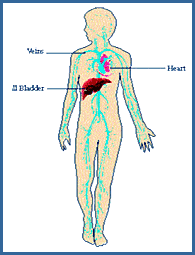|
|
|
| READING VEDIC LITERATURE IN SANSKRIT |
 |
|||
Home

|
 |
|||
| His
Holiness Maharishi Mahesh Yogi on the importance of regular practice of the Transcendental Meditation technique: |
Harita
Samhita is one of the structuring dynamics of Rk Veda. It highlights
the NOURISHING quality involved in structuring Rk Veda. With reference to consciousness, Harita Samhita comprises the specific sets of laws of Nature that are engaged in promoting the quality of Chhandas--the object |
|||
|
Scientists have found that those who practice
that means that they have access to the |
of observation, which hides the dynamism of Devata in the witnessing quality
of Rishi--within the Samhita level of consciousness, providing a structure to the eternally silent, self-referral, self-sufficient, fully awake state of consciousness, which is intimately personal to everyone. (complete table of qualities) |
|||
|
In the physiology, [Harita Samhita] The 7 divisions and 103 chapters of Harita |
 more about Harita Samhita |
|||
|
end of page |
||||